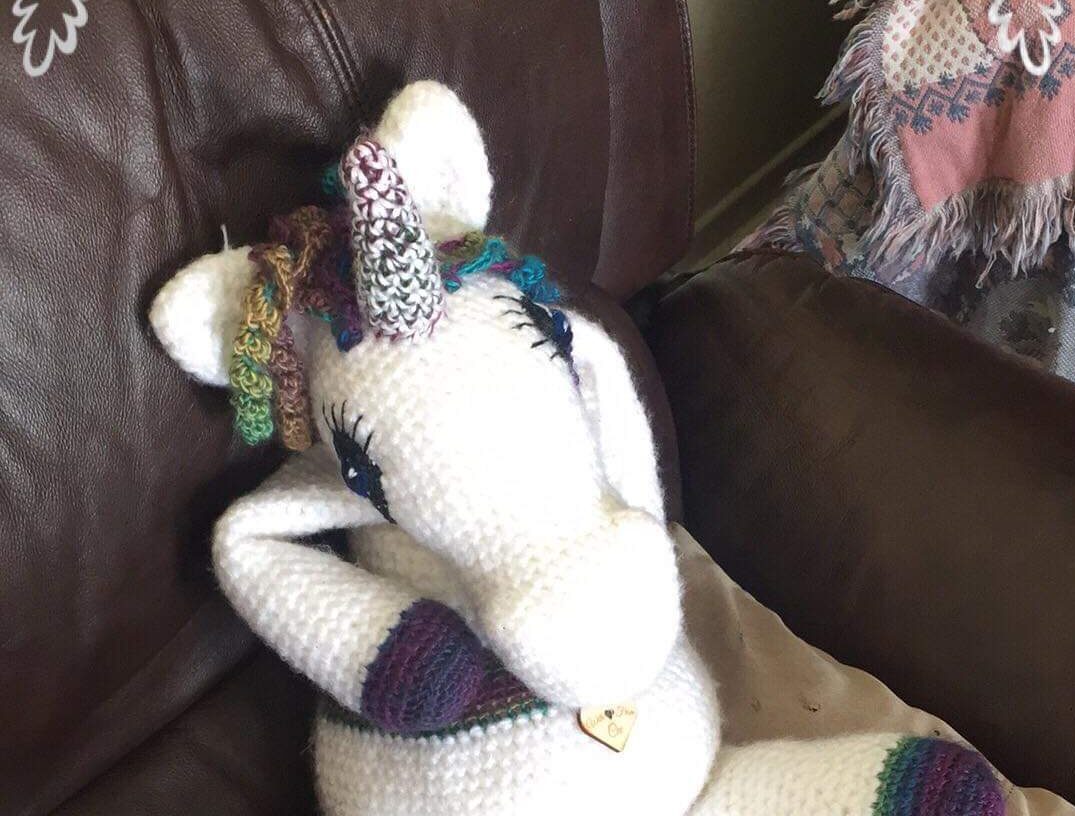Posts by Grief Stories
Jim – Self care
Jim – Self care
Jim shares about the importance of self-care for law enforcement officers. I share some simple tips that can help you take care of your physical and mental health, including: Getting enough sleep, Eating a healthy diet, Exercising regularly, Practicing relaxation techniques, Seeking professional help if needed
Jim – Preparation
Jim – Preparation
Jim shares here is no way to truly prepare for the experiences that you will see as a police officer. You can read about it, talk to veteran officers, and even watch videos, but until you are personally involved in something, you will never know how it will affect you. The best way to deal with the challenges of being a police officer is to expect the unexpected and to be prepared to handle anything that comes your way. Remember, you are not alone. There are many resources available to help you cope with the stress of the job, and there are many other officers who understand what you are going through. If you are considering a career in law enforcement, be sure to do your research and talk to as many people as you can before you make your decision
Jim – When should you seek help
Jim – When should you seek help
Jim talks about when you should seek help for mental health. How it can be difficult to ask for help, especially for men and for people in certain professions, such as law enforcement and the military. But if you are struggling, it is important to reach out for support
Jim – Humour and grief
Jim – Humour and grief
Jim talks about how humour can help us cope with grief. “I’m Irish, and we have a saying that ‘laughter is the best medicine.’ I believe that humour can help us to see the lighter side of life, even in the midst of pain. It can help us to connect with others, and it can help us to find hope. I encourage you to find ways to laugh, even when you’re grieving. It might not always be easy, but it can make a big difference.”
Jim – Grief and policing
Jim – Grief and policing
Jim – ” I believe that policing is a profession that is constantly filled with loss. Whether it is losing a partner, a friend, or a loved one, police officers are always dealing with the pain of loss. I also talk about my own personal experience with grief, and how I have learned to cope with it. I hope that this video will help other police officers who are struggling with grief.”
Jim – Helping by listening
Jim – Helping by listening
Jim – ” I talk about how to be a good listener to someone who is grieving. I believe that one of the most important things you can do for someone who is grieving is to simply listen. Don’t try to fix their problems or offer advice. Just listen and be there for them. It can be as simple as meeting for coffee or taking a walk together. You’re doing more help than you realize when you simply listen to someone.
Jim – Triggers
Jim – Triggers
Jim discusses triggers, how to recognize them and develop coping mechanisms to help deal with the strong emotions that they can cause
Jim – Supporting someone in crisis
Jim – Supporting someone in crisis
Jim talks about supporting someone in crisis and how being there for them can help. That may mean answering the phone at 2am, taking them to the doctor’s appointment, and checking tup on them. It’s not easy, but it’s the right thing to do. He was fortunate to have a friend who did this for him, and is still grateful for their support. If you know someone who is struggling, don’t be afraid to step up. It could make all the difference.
Jim – Police culture and grief
Jim – Police culture and grief
Jim talks about how grief is a natural part of life, but it can be especially difficult to deal with when you’re in the police culture. There’s a lot of pressure to bottle up your emotions and not show weakness, but that’s not healthy. It’s important to find healthy ways to cope with your grief, whether it’s talking to a therapist, joining a support group, or simply spending time with loved ones. You’re not alone, and there are people who care about you and want to help.
Saved by a Unicorn: How I Found the Positive in Grief, One Stitch at a Time
By Cee Fisher
I’ve tried many ways of handling grief. I love the challenge of redirecting the negative energy derived from grief, turning it into something positive and useful. Of course, things don’t always go as planned. Still, it feels good to know I have the power to switch things up and try to create more of a sustainable balance in my life. It gives me a sense of control and helps me to feel more hopeful.
One of my most devastating experiences with grief was when I found out my soulmate, Reuben, died. He was the rarest, most caring soul I’d ever met. People respected him. They listened to him. Reuben and I were engaged for a couple of years, and although our breakup was complicated there are a few facts you should know. When we last spoke, we were living in separate countries. He was living on kidney dialysis. I was raising our son alone. They had never met. We were making plans of reuniting. Somewhere along the line, our phone numbers changed and caused us to lose touch. I searched for him for ten years. When he died, a letter that he had written to me was discovered in his belongings. In the letter, he said he needed to speak to me as soon as possible. We never got to have that conversation, and he never got to meet his son.
Googling his name had become very routine, but this time was different. A link appeared. My jaw dropped excitedly until I followed the link and saw the word “late” typed next to his name. That was it for me. That was when my world came crashing down. It felt as if I was violently kicked off cloud 9 and slammed in the gut with a sledgehammer. I opened my mouth and felt my soul wailing, but it was as if I were crying in reverse. I could not breathe. I truly believe that was the day I gained full understanding of what a meltdown feels like.
I hid in my room for about a week, curled up in fetus position, aimlessly crying out Reuben’s name. I felt totally lost and defeated, and knew I needed something else to focus on. Life had taught me that. I needed to engage in something therapeutic, and washing dishes was definitely out of the question. I decided to buy a crochet hook. I crocheted every day, and soon began receiving requests for paid orders. I began selling at outdoor events, surrounded by nature. In no time, I was designing and crocheting custom-made items, including a unicorn my neighbor ordered for her daughter.
Looking back, I had no idea how to even continue to live. A simple attempt at something therapeutic sent the negative bereavement energy into a positive direction. It made me realize my strengths, at a time when I felt I had none at all. It provided a space where I am now better able to manage grief when it hits.
Reflections on Mother’s Day
By Jessica Milette, MSW, RSW
The signs of spring start to show up: the bird calls, sleepy daffodils and tulips waking up from their slumber, the trees beginning to bud ready to shade us with their leaves all season. And then, the flood of Mother’s Day emails start crashing into our inboxes.
Mother’s day is a holiday where we show appreciation and care for the maternal roles in our lives. However, this holiday can feel very overwhelming for those of us who are grieving the death of a mother figure, a mother grieving their child, or those of us grieving the loss of not being able to become mothers ourselves. The ads, commercials, and displays at the store, designed to be appealing and inviting become a painful grief trigger as we go about our day, our minds and hearts going to the person we’re grieving who isn’t alive to receive their flowers or gifts. Feeling as if our grief is heightened on holidays or times of celebration is a natural reaction to have. Often around these times of the year we gather with our loved ones, and our special person’s absence feels amplified.
Over the years, my grief reactions around mother’s day continue to change. At first, it was like a black looming cloud and I would avoid anything to do with Mother’s Day. Over time, I still have had hard Mother’s Days but the day looks much different. I may write to my mother, choose to ignore the day and do things unrelated to Mother’s Day, make a comforting meal from my childhood, or participate in a memorial event on Mother’s Day. Regardless of what I choose to do, or not do on Mother’s Day I make sure to give myself the space and compassion to rest and recover – grief can be exhausting.
There is no right or wrong way to grieve, nor how to go through Mother’s Day. Our relationship as mothers and children is unique, so too will be our grief. The following ideas may be how you’d like to take time to honour the person you’re remembering and grieving on Mother’s Day:
-Unsubscribing from Mother’s Day emails (some companies have a special opt-out message for folks to unsubscribe from these types of emails)
– Ignoring Mother’s Day altogether and doing something that fills you up (it could be going to a movie your person may have never wanted to go to or taking a long hike)
– Creating an altar with photos, keepsakes, and favourite things of your person
– Lighting a candle in their honour
– Writing them a card, updating them on your life and reflecting on your relationship
– Creating a new tradition or ritual to replace Mother’s Day
– Packing your day with connection and activities with trusted others who support you in your grief
– Having a day of nothing: allowing yourself to do what your heart is telling you (a bath, a nap, a cry)
Sometimes our grief may feel heaviest in anticipation of Mother’s Day or on Mother’s Day itself. As we enter May and Mother’s Day approaches, I wish for you to be compassionate towards yourself and move through the day in the way that fits your heart and relationship best.
Christian – Grieving the whole person
Christian – Grieving the whole person
Christian talks about how we choose remember people when there has been a loss to drug poisoning


